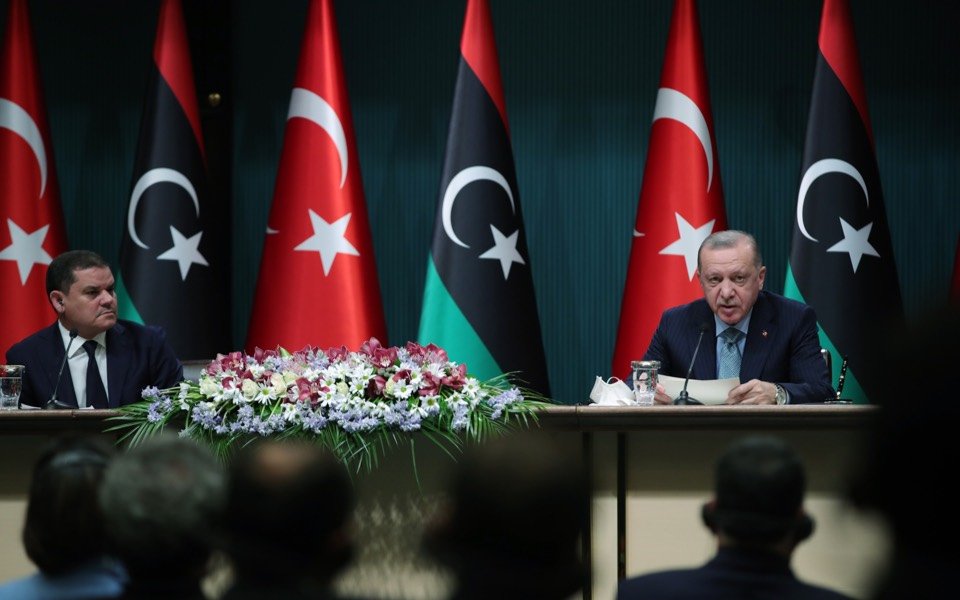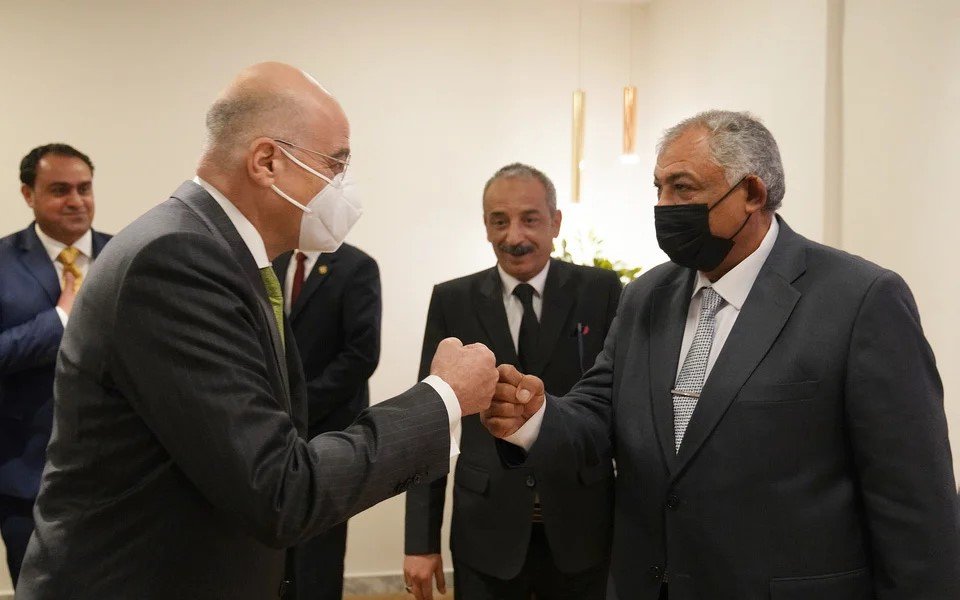The head of Libya’s new interim government and Turkish President, Recep Tayyip Erdogan, on Monday affirmed their commitment to a controversial 2019 maritime agreement that has angered Greece and Cyprus.
Speaking following a meeting in Ankara with Libyan Prime Minister, Abdul Hamid Dbeibah, Erdogan pledged to support Libya’s unity, its reconstruction and its military. Turkey would also be sending 150,000 COVID-19 vaccine doses, as well as manage a pandemic hospital in Tripoli, to help the North African country battle its outbreak, Erdogan said.
Libya’s interim government, which took power last month, is meant to bring together a country that has been torn apart by civil war for nearly a decade. It is also aims to steer through a general election on December 24.

Turkey has been closely involved in Libya, backing the UN-recognised Government of National Accord (GNA), based in the capital Tripoli that controlled the west, against the Libyan National Army (LNA), based in Benghazi that controlled the east. Turkey sent military supplies and fighters to Libya, helping to tilt the balance of power in favor of the Tripoli government.
Turkey also signed an agreement with the Tripoli-based government delineating the maritime boundaries between the two countries in the Mediterranean, triggering protests from Greece and Cyprus. Both countries denounced the agreement, saying it was a serious breach of international law that disregarded the rights of other eastern Mediterranean countries.
“The memorandum of understanding concerning the maritime jurisdiction in the Mediterranean that we signed with our neighbor Libya, has secured the interest and future of both countries,” Erdogan said.

Dbeibah, who has been trying to strike a balance between Turkey and Greece following Athens’ concerns over the maritime deal, also said the deal serves both Turkey and Libya’s national interests. He added however, that it was important to start a dialogue that would take into account all involved parties’ interests.
Previously, Dbeibah has said his government is willing to establish a joint Libyan-Greek committee to resume negotiations to set the sea boundary between the two countries and demarcate an exclusive economic zone for oil and gas drilling rights.
Dendias vows Greece ‘is back’ in Libya:
Meanwhile, Greece called for the accord to be cancelled, as it reopened its embassy in Libya after seven years on Monday.
Greek Foreign Minister, Nikos Dendias, met Libya’s alternative Prime Minister, Hussein Atiya Abdul Hafeez Al-Qatrani, in Benghazi on Monday and noted that Libya’s parliament had not ratified the accord, which Greece considers has no legal force.

“Greece has always believed that the solution of Libya’s problems must come from the immediate departure of all foreign armed forces and foreign mercenaries from Libyan soil,” he stressed.
The minister also traveled to Benghazi to meet with representatives of the Greek community of the region.
“Greece is back to help as much as it can. With our people, with our identity as a European Union member, and we hope to maintain our friendship with Libya and help Libya move forward and become a prosperous and stable country,” he said to a gathering of Greeks in Benghazi.
Source: AP News / Ekathimerini.
